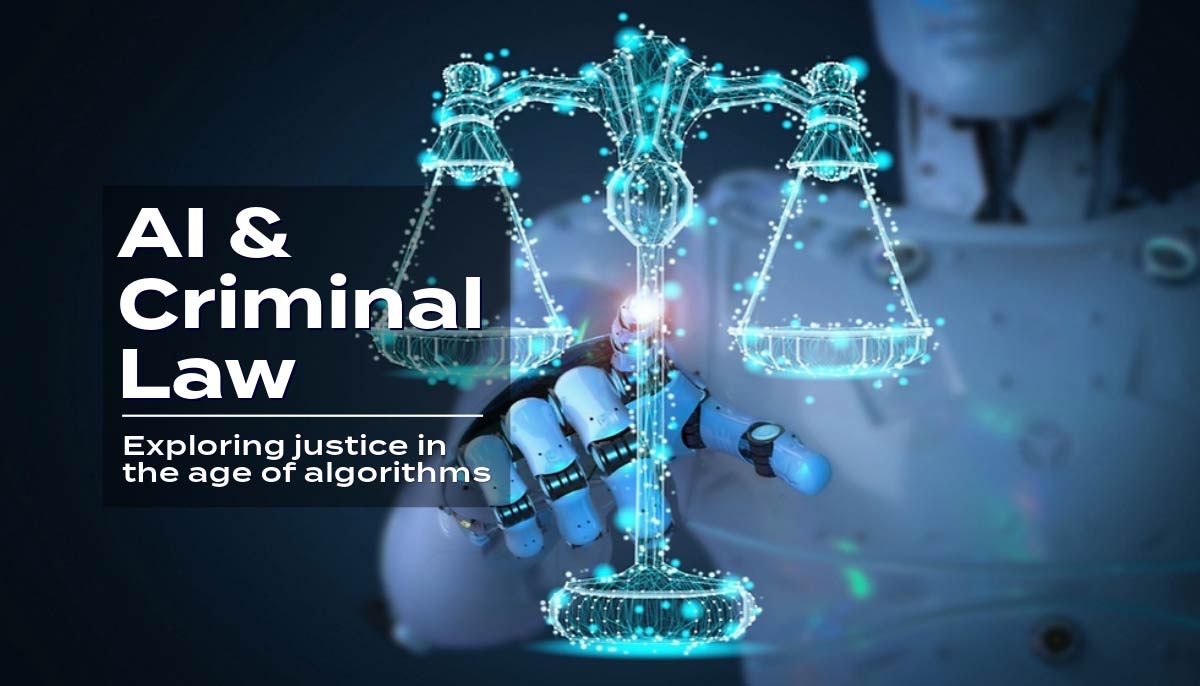
Artificial Intelligence (AI) is transforming criminal law, from investigative techniques to courtroom procedures. Its integration into legal workflows promises enhanced efficiency and precision, but it also introduces critical ethical, legal, and practical challenges. As AI systems become more prevalent in policing, litigation, and sentencing, understanding their impact—both positive and perilous—is essential for all legal professionals.
Philadelphia Federal Criminal Defense Lawyer NiaLena Caravasos sees both positive and negative aspects of Artificial Intelligence in the legal system. Learn more in the featured CIO Women Cover Story, where she discusses AI in the section titled Adapting to Legal Tech Challenges.
AI in Criminal Justice: Key Applications
Predictive Policing and Crime Forecasting
Law enforcement agencies use AI to anticipate where crimes may occur based on historical data. These systems analyze trends by geography, time, and offense type, enabling departments to deploy resources more strategically. However, these tools risk reinforcing existing biases if the input data reflects historically discriminatory practices.
AI in Risk Assessment and Sentencing
Courts now rely on AI-powered tools to assess defendants’ risk of recidivism. Instruments like COMPAS (Correctional Offender Management Profiling for Alternative Sanctions) are designed to inform bail, sentencing, and parole decisions. Yet the opacity of their algorithms and potential for racial bias have drawn substantial legal and scholarly criticism.
Forensic Advancements Through AI
AI accelerates and refines forensic investigations:
- Facial Recognition: Assists in suspect identification but faces scrutiny over misidentification, particularly of minority individuals.
- DNA Analysis: Automates the interpretation of complex genetic evidence.
- Video and Audio Analysis: Enhances the detection of critical evidence in multimedia formats, including voiceprint matching and deepfake detection.
In addition to AI-driven tools, human expertise remains critical in assessing individuals’ psychological fitness to stand trial. Forensic psychology plays a pivotal role in legal competency evaluations, providing courts with proficient insight into a defendant’s mental state and decision-making capacity.
Legal Research and E-Discovery
AI tools like natural language processing and machine learning reduce the time and cost associated with legal research, contract review, and discovery. These systems can rapidly identify relevant precedents and sort through vast document repositories, transforming how lawyers prepare cases.
Risks and Limitations of AI in Law
Algorithmic Bias and Discrimination
AI systems reflect the data on which they are trained. If that data is biased—whether historically or structurally—the resulting decisions will also be biased. This concern is especially acute in criminal justice, where unequal treatment of different demographic groups can have life-altering consequences.
The Danger of Deepfakes and Fabricated Evidence
Deepfake technology poses a serious threat to the integrity of evidence. AI-generated audio and video can convincingly mimic real individuals, creating the risk of fabricated confessions, false surveillance footage, or manipulated witness accounts. Legal systems must develop rigorous authentication standards to ensure only legitimate digital evidence is admissible.
Lack of Transparency
Many AI tools function as “black boxes,” making it difficult—even for their creators—to explain how they arrive at conclusions. This lack of explainability undermines principles of due process and challenges the adversarial model, where both sides must have equal access to, and understanding of, the evidence used in court.
AI and Professional Misconduct: Real-World Consequences
Legal professionals must exercise caution when using AI tools in their practice. In several high-profile incidents, attorneys have faced disciplinary action for citing fictitious legal cases generated by AI tools like ChatGPT. In one notable case, a federal judge sanctioned lawyers who submitted a legal brief containing fake case law invented by an AI assistant.
This underscores a critical limitation: AI tools do not understand law—they generate plausible-sounding text based on patterns in training data. Legal practitioners must always verify citations, facts, and arguments independently. Relying on AI without due diligence violates ethical duties and jeopardizes clients’ rights.
Regulatory and Judicial Developments
Judicial Proposals to Regulate AI in Evidence
U.S. judicial bodies are beginning to address the admissibility and regulation of AI-generated content in court. New proposals suggest that AI-based evidence should meet similar reliability thresholds as expert testimony, including disclosures about the system’s design, testing, and known limitations.
Global Frameworks and Best Practices
Institutions like the United Nations Interregional Crime and Justice Research Institute (UNICRI) advocate for responsible AI deployment in law enforcement. International efforts focus on human rights safeguards, impact assessments, and transparency benchmarks.
Legal Practice in the Age of AI: Ethical Duties
Lawyers have an ethical obligation to understand the technologies they use. The ABA Model Rules of Professional Conduct, particularly Rule 1.1 (competence) and Rule 3.3 (candor to the tribunal), impose a duty to ensure that any AI-assisted work is accurate, truthful, and lawful. Understanding AI’s capabilities and limitations is now a baseline requirement for competent legal practice.
Conclusion
Artificial Intelligence is not a substitute for legal judgment. While it offers unprecedented capabilities in criminal law—from streamlining discovery to enhancing forensic analysis—it also raises complex issues of bias, transparency, and misuse. As AI continues to evolve, legal professionals must remain vigilant stewards of justice, ensuring that these technologies serve the law—not undermine it.
Disclaimer: This article is for informational purposes only and does not constitute legal advice. Always consult qualified legal counsel for guidance on specific matters.












